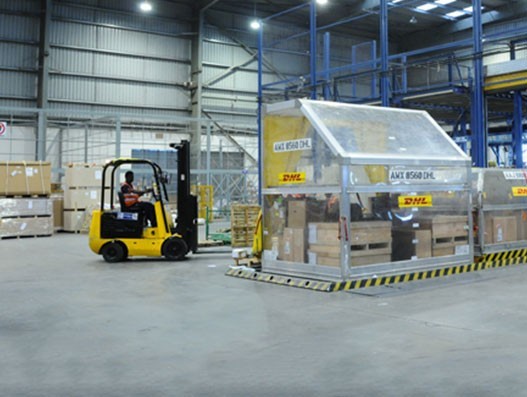
BLR Airport becomes first metro airport in India to record positive cargo growth volumes
The cargo processed in September was 32,449 tonnes, a growth of +0.3 per cent, against same period last year.

Cargo volumes at Kempegowda International Airport, Bengaluru (KIAB/BLR Airport) are gathering momentum with international cargo leading the recovery, following a prolonged slump due to the Covid-19 pandemic. This resurgence in cargo movement powered BLR Airport to become the first metro airport in India to record growth in freight in September 2020, compared to the same period last year.
Improved connectivity and increase in Passenger to Cargo (P2C) aircraft, combined with proactive measures by Bangalore International Airport Limited (BIAL) — operator of BLR Airport — to enable seamless processing to have pushed cargo volumes into positive territory.
In the first two quarters of FY2020-21, between April and September, BLR Airport cargo terminals processed 131,603 tonnes of freight. The cargo processed in September was 32,449 tonnes, a growth of +0.3 per cent, against same period last year.
Perishable cargo has been one of the major growth drivers, with BLR Airport having processed 17,212 tonnes during this period. The airport accounted for highest exports of perishables among Indian Airports till June 2020 (source: APEDA website). It also processed 180,745 kg of pomegranate from April to August 2020, to emerge as the leading Airport for pomegranate exports from India. The other segments driving growth are readymade garments, engineering goods, pharma and medical supplies.
The introduction of the road feeder service – LOGI Connect – to link cities like Tirupur, Coimbatore, Ambur, Salem, Erode, Hyderabad and Chennai further augmented growth, powering BLR Airport’s all-India market share of air cargo from 11 per cent to 14 per cent.
Before the pandemic, around 60 per cent of domestic and international freight was being carried in belly space of passenger aircraft and the remainder in freighters. With the reduction in passenger flights due to restrictions, several airlines – both domestic and international – converted P2C aircraft, enabling the availability of a larger amount of cargo capacity. As a result, BLR Airport saw the growth of cargo aircraft movements by 139 per cent against the previous year.
While Q2 witnessed a 46 per cent growth in ATMs against Q1, the total tonnage, too, improved by 84 per cent.
BLR Airport recovers 88 per cent of pre-Covid-19 routes
Kempegowda International Airport, Bengaluru has reconnected 51 domestic destinations, achieving 88 per cent connectivity of the pre-Covid-19 routes. In addition, the Government of India's Vande Bharat Mission and Air Bubble programmes have enabled BLR Airport to connect with 22 international destinations. With the gradual easing of restrictions, Air Traffic Movements have witnessed an encouraging trend, recovering to 53 per cent of the previous year's flight movements, following successive measures to unlock India’s economy.

